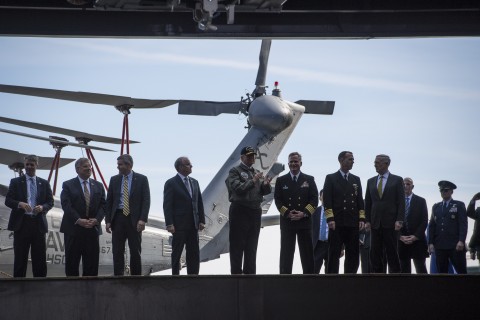When President Trump’s top foreign policy advisers gathered recently at the White House to discuss plans to revamp the administration’s war strategy, the makeup of those in the room was indicative of a significant turn in U.S. foreign policy.
Seated front and center at the Situation Room table were four current or retired generals who dominate just about every big national security decision Trump makes.
The disconnect over a major policy shift, with big implications for the Pentagon, the State Department and the federal budget, illustrates the sway military officers hold in the Trump administration. Current and retired military officers not only hold positions at the highest ranks of government but also fill senior staff jobs in the White House that have traditionally been the purview of civilians or experienced diplomats.
According to a review by The Washington Post, at least 10 out of 25 senior policy and leadership positions on the National Security Council (NSC) are held by current or retired military officials, up from two at the end of the Obama administration.
To some analysts, the heavy presence of military officers on the NSC, many of whom helped forge the Bush administration’s do-or-die response to a spiraling insurgency in Iraq, is a much-needed corrective inside the White House. They say that a stable and sustainable outcome in such places as Iraq, Yemen and Syria cannot be achieved quickly or on the cheap.
In Yemen and Somalia, the president has given the military greater rein to launch raids and fire missiles, empowering on-the-ground commanders to make decisions that were tightly managed by the previous White House.
“There needed to be a civilian mechanism to help guide strategy and decision-making,” said Derek Chollet, a top official in the Obama White House and Pentagon. Although there is a long tradition of military personnel serving on the NSC, Chollet said the staff has typically been dominated by career civil servants and experts from outside of government.
The Washington post
خليك معنا

